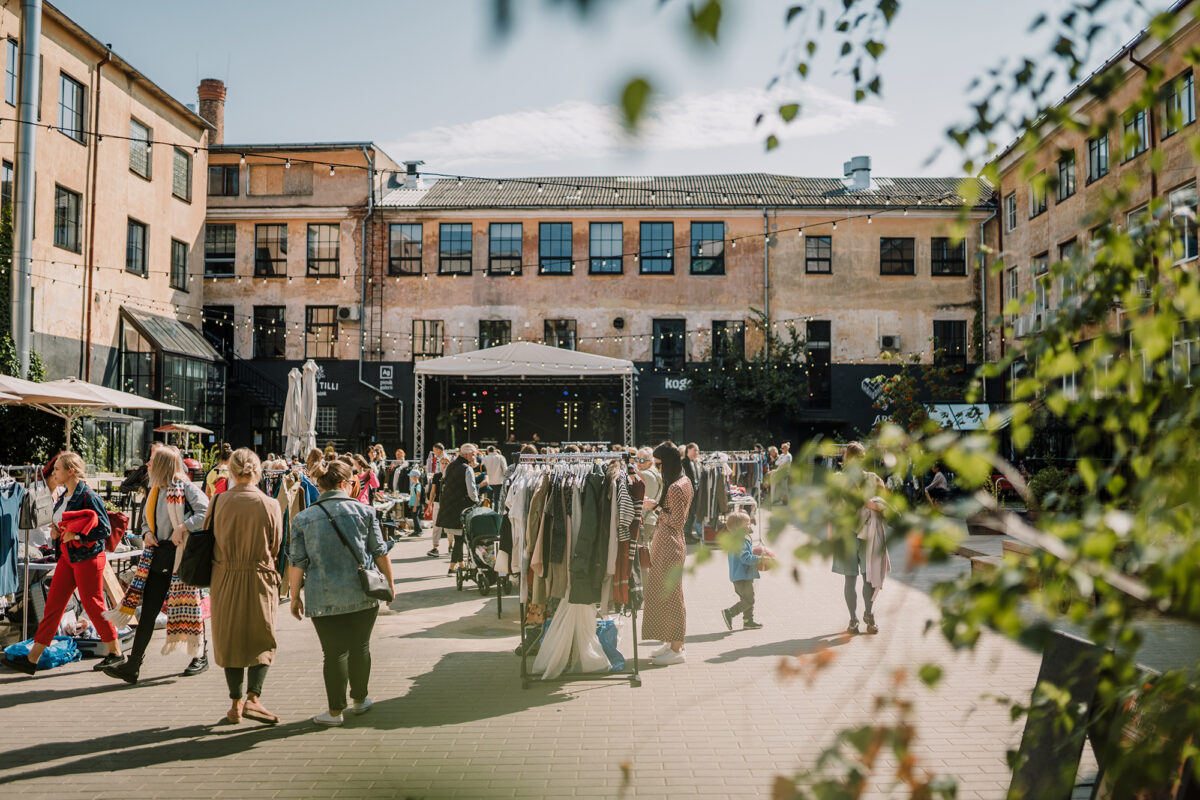Case Tartu | The Tartumaa Circular Economy Roadmap
Author: Marion Kade, Tartu City Government
As we embark on the journey toward sustainability, we are excited to share our comprehensive vision for the Tartu County Circular Economy Roadmap 2030. This important framework aims to position Estonia’s Tartu area as a leader in circular economy practices by 2030, aligning with the ambitious goal of achieving climate neutrality in Tartu County by 2050.
Our roadmap outlines strategic goals, key metrics, and innovative regional solutions that enhance circular economy capabilities across public administration, businesses, and local communities. By focusing on reducing waste and promoting the reuse of materials, we aim to transform not only our economy but also the fabric of our community. Join us as we explore the main components of this roadmap and the vital role of Living Labs in shaping our sustainable future.
Vision and Objectives
In the heart of Tartu County, we share a unified vision: to become leaders in the circular economy sector. Our roadmap is built upon key objectives that guide our efforts:
- Promoting Sustainable Practices: We want to encourage waste reduction while maximizing the reuse of materials. This will help foster a culture of sustainability in all aspects of life in Tartu County.
- Fostering Economic Development: By creating new business models that utilize local material flows, we aim to minimize our ecological footprint and promote economic growth.
- Enhancing Regional Competitiveness: We strive to make Tartu County a centre of innovation and sustainability, attracting businesses and individuals committed to circular economy practices.
- Engaging Stakeholders: Involving all segments of society in the transition to a circular economy is crucial. Through co-creation and active participation, we ensure that everyone has a stake in our collective future.
Key Focus Areas
To achieve our ambitious goals, we have identified several priority areas that are essential for fostering a circular economy in Tartu County:
- Co-creation and Communities: Engaging local communities in decision-making processes is vital for creating inclusive and effective solutions.
- Reuse and Recycling: We are developing systems and infrastructures that promote recycling and repurposing of materials, reducing waste at its source.
- Renewable Energy and Energy Use: By encouraging the adoption of renewable energy sources and efficient energy practices, we aim to reduce our reliance on fossil fuels.
- Land Use and Agriculture: Implementing sustainable agricultural practices and responsible land use will enhance our local ecosystems and food security.
- Industry and Services: We are facilitating the transition of local industries toward circular business models that emphasize sustainability.
- Sustainable Food Systems: Promoting sustainable food production and consumption practices is crucial for the health of our communities and our planet.

Development Process
The journey to develop the Tartu County Circular Economy Roadmap has unfolded in two main phases, characterized by extensive stakeholder engagement and careful analysis.
Phase 1: Situational Analysis (2023)
The first phase, conducted by HeiVäl OÜ, involved a thorough analysis of the current situation in Tartu County. Key activities included:
- Mapping National and Regional Plans: We reviewed existing national and regional development plans related to sustainability and circular economy principles to align our roadmap’s objectives with broader strategic goals.
- Comparative Analysis of Circular Economy Roadmaps: By analyzing over 70 circular economy roadmaps from similar regions, we gained valuable insights into best practices and successful strategies.
- Waste Flow Analysis: An in-depth examination of waste flows in Tartu County highlighted areas for improvement and informed our targeted recommendations.
- Recommendations for Action: Based on our findings, we proposed actionable recommendations across six key life areas, which served as inputs for the roadmap’s development.
Phase 2: Co-Creation and Stakeholder Engagement (January – June 2024)
The second phase of our development process focused on interactive co-creation and stakeholder engagement. Key activities included:
- Stakeholder Identification and Engagement: We identified key stakeholders from various sectors—municipalities, businesses, NGOs, and community organizations—to ensure diverse representation of perspectives.
- Vision and Action Direction Seminars: We organized three major seminars, attracting 101 participants who shared their expectations for the circular economy sector and proposed actionable goals.
- Strengthening Inter-Municipal Cooperation: Our commitment to collaboration was reinforced by the active participation of representatives from all municipalities in Tartu County.
- Validation by Sector Experts: Experts from various fields validated the roadmap’s content, ensuring it is grounded in practical realities.
- Living Lab Meetings: Regular meetings served as collaborative forums for discussing circular economy initiatives. These forums highlighted the significance of community engagement in shaping our path forward.
Implementation Framework and Monitoring
As we move forward, the successful implementation of the roadmap will be guided by a robust framework. This includes establishing a steering group and sector-specific working groups to oversee progress, defining measurable goals, and developing a user-friendly online platform for public communication and stakeholder engagement.

Expected Outcomes and Future Outlook
We anticipate that the completion of the Tartu County Circular Economy Roadmap will set the stage for Tartu County to establish itself as a leader in circular economy practices in Southern Estonia by 2030. The expected benefits are substantial:
- Environmental Impact: We expect significant reductions in waste generation and enhanced recycling efforts that will contribute to a cleaner environment.
- Economic Growth: The creation of new business models will open opportunities for local entrepreneurs, driving economic growth.
- Community Engagement: We aim to increase awareness and participation among residents in sustainability initiatives, fostering a culture of environmental stewardship.
Conclusion
The Tartu County Circular Economy Roadmap represents a crucial step toward sustainable development in our region. By fostering collaboration, innovation, and stakeholder engagement, we aspire to create a resilient and environmentally responsible future. As we continue to implement the roadmap, we are excited about the opportunities it presents—not only for Tartu County but as a model for other regions to follow on their sustainability journeys. Together, we are committed to achieving climate neutrality and advancing circular economy principles, ensuring a sustainable legacy for generations to come.

